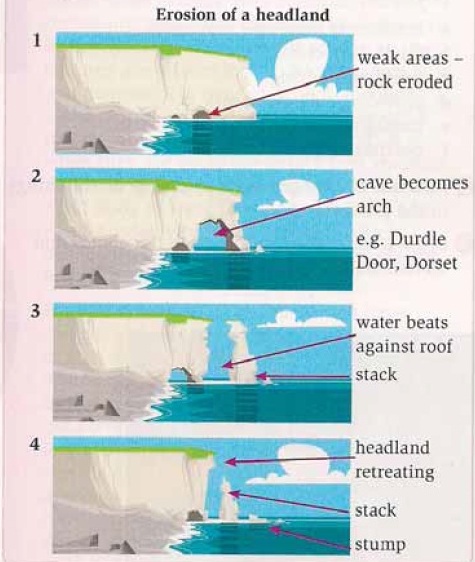The diagrams illustrate how the headland is being erosed by the water that surrounds it.
At first, erosion starts with the small hole in the bottom of the headland, called weak area because of its fragility and incompetence to restrain the force of the tide. Consequently, tides continue to wipe the cave, greatly expanding it and changing it's form into the arch. Durdle Door in Dorset can be used as a great example of the arch, caused by the erosion.
As the waves continue to beat the headland, the roof stack is being collapsed and the headland breaks into two separate parts. Eventually, the beginning of the former headland called stump is being almost completely eradicated while the stack is being half-sized. The process of the erosion is finished when the headland finally retreats.
Mainly, the ability of the headland to resist the erosion depends on the presence of the weak areas in the bottom of it.
At first, erosion starts with the small hole in the bottom of the headland, called weak area because of its fragility and incompetence to restrain the force of the tide. Consequently, tides continue to wipe the cave, greatly expanding it and changing it's form into the arch. Durdle Door in Dorset can be used as a great example of the arch, caused by the erosion.
As the waves continue to beat the headland, the roof stack is being collapsed and the headland breaks into two separate parts. Eventually, the beginning of the former headland called stump is being almost completely eradicated while the stack is being half-sized. The process of the erosion is finished when the headland finally retreats.
Mainly, the ability of the headland to resist the erosion depends on the presence of the weak areas in the bottom of it.

222049_1_o.jpg
